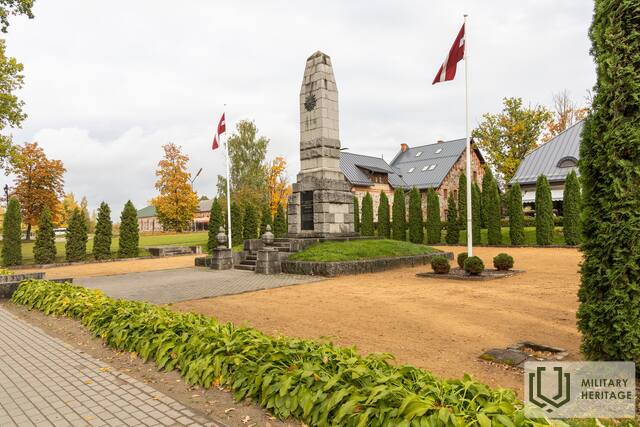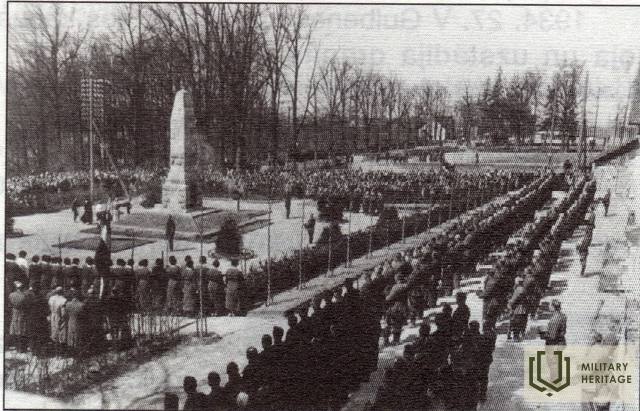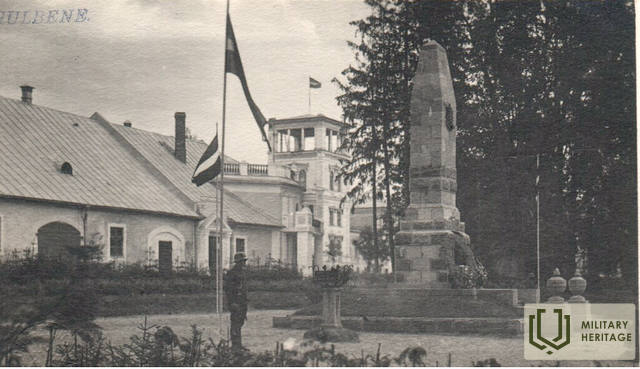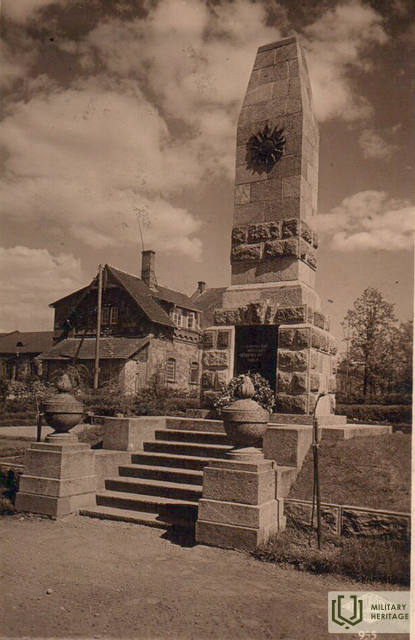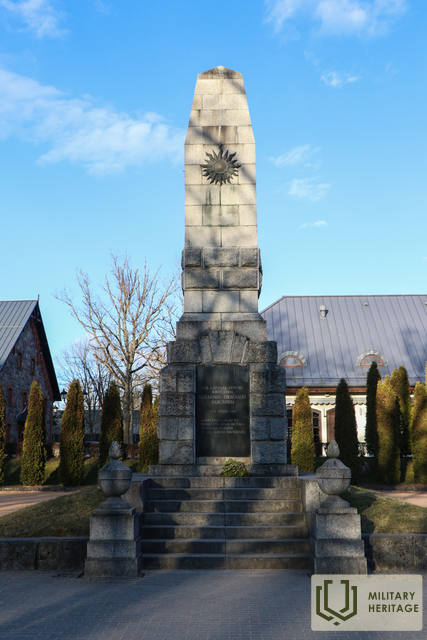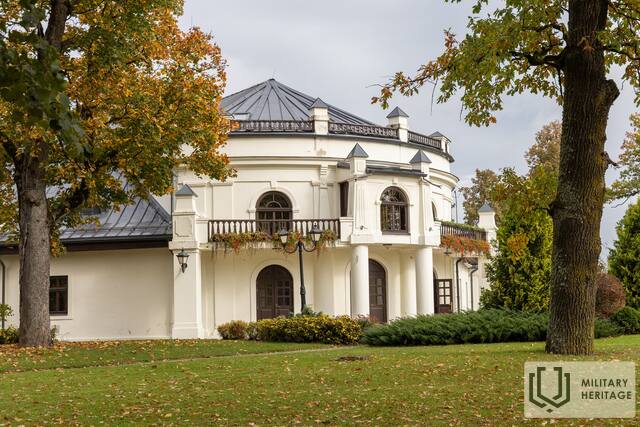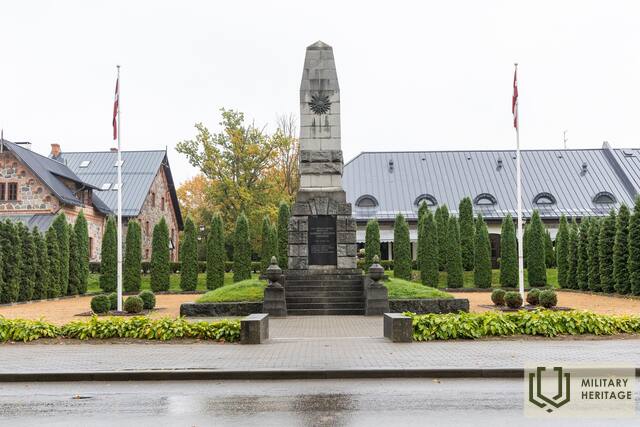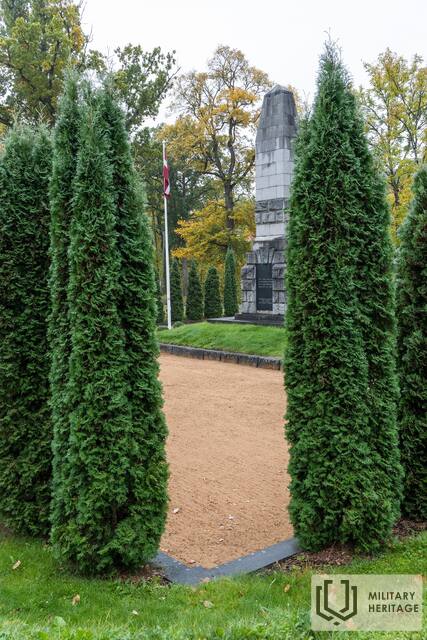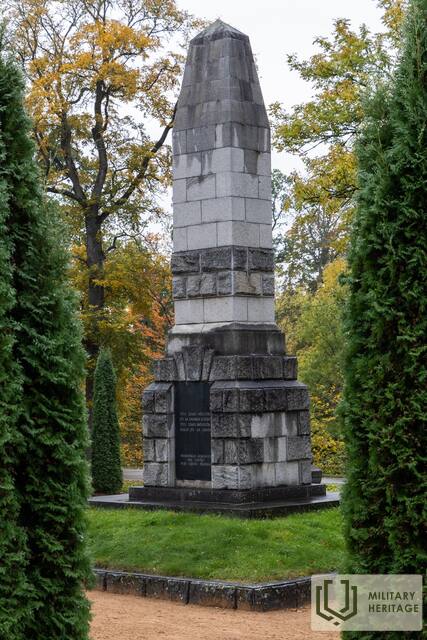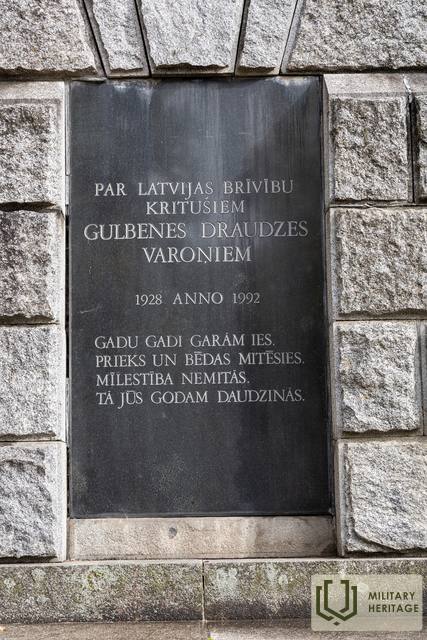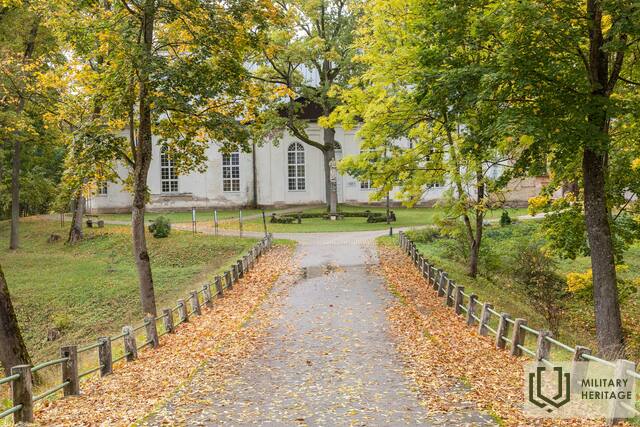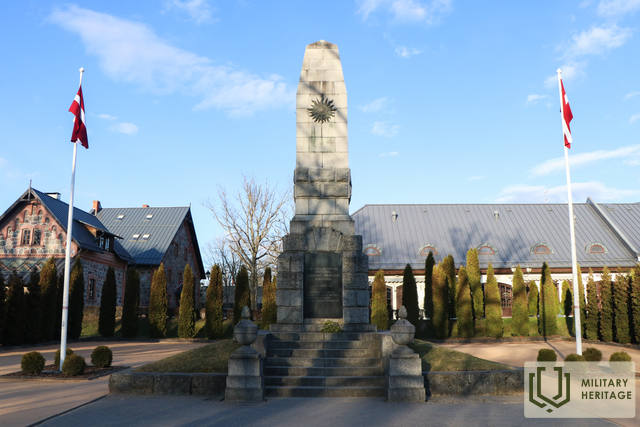Monument to the fallen heroes of Gulbene parish in Latvia
Memorial site

Located in the historical center of Gulbene, opposite the Gulbene Evangelical Lutheran Church.
Monument to the victims of the riots of 1905, members of the Gulbene congregation who fell in the First World War and the Latvian War of Independence, and the victims of the Maliena tribunal. The monument was designed by E. Ābeltiņš and was unveiled in 1929 in front of the Gulbene Evangelical Lutheran Church. After the Second World War, a five-pointed star was placed on the monument, then - on its foundations - a plaster image of a Soviet soldier was painted in bronze, and a cemetery of fallen Soviet soldiers was erected behind the monument. When the new cemeteries of Soviet soldiers who died in World War II were opened in Spārīte Park in 1969, the remains of the fallen were transported there, but the site of the monument was leveled with the ground. In the autumn of 1989, the foundations of the monument were excavated and the capsule with the text built into them in 1928 was excavated. The monument was restored in 1992 (sculptor O. Feldbergs).
Between December 24, 1918 and May 31, 1919, when the 1st (4th) Valmiera Infantry Regiment liberated Gulbene from the Bolsheviks, the Maliena (Vecgulbene) Revolutionary War Tribunal and Workers' Club were located in the church. It stood out for the severity of its decisions and the high number of death sentences, often for minor offenses, in which 349 cases were investigated and 606 people were charged.
A memorial sculpture can be seen.
Used sources and references:
Zudusilatvija.lv, GNVMM museum collection




